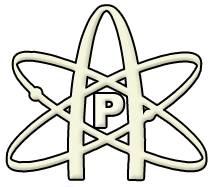Não aconselhado a eurocépticos de esquerda e de direita, nacionalistas de tipos vários nem a quem confunde admiração pelos Estados Unidos (sobretudo pelo pior dos Estados Unidos) com ódio à Europa.
Europe has lost the plot. As we approach the 50th anniversary of the treaty of Rome on 25th March 2007—the 50th birthday of the European economic community that became the European Union—Europe no longer knows what story it wants to tell. A shared political narrative sustained the postwar project of (west) European integration for three generations, but it has fallen apart since the end of the cold war. Most Europeans now have little idea where we're coming from; far less do we share a vision of where we want to go to. We don't know why we have an EU or what it's good for. So we urgently need a new narrative.
I propose that our new story should be woven from six strands, each of which represents a shared European goal. The strands are freedom, peace, law, prosperity, diversity and solidarity. None of these goals is unique to Europe, but most Europeans would agree that it is characteristic of contemporary Europe to aspire to them.
[...]
By contrast with much traditional EU-ropean discourse, neither unity nor power are treated here as defining goals of the European project. Unity, whether national or continental, is not an end in itself, merely a means to higher ends. So is power. The EU does need more capacity to project its power, especially in foreign policy, so as to protect our interests and realise some benign goals. But to regard European power, l'Europe puissance, as an end in itself, or desirable simply to match the power of the US, is Euronationalism not European patriotism.
So our new narrative is an honest, self-critical account of progress (very imperfect progress, but progress none the less) from different pasts towards shared goals which could constitute a common future. By their nature, these goals can not fully be attained (there is no perfect peace or freedom, on earth at least), but a shared striving towards them can itself bind together a political community.
So our new narrative is an honest, self-critical account of progress (very imperfect progress, but progress none the less) from different pasts towards shared goals which could constitute a common future. By their nature, these goals can not fully be attained (there is no perfect peace or freedom, on earth at least), but a shared striving towards them can itself bind together a political community.
[...]
Freedom Europe's history over the last 65 years is a story of the spread of freedom. [...]
Most Europeans now live in liberal democracies. That has never before been the case; not in 2,500 years. And it's worth celebrating.
[...]
Peace For centuries, Europe was a theatre of war. Now it is a theatre of peace. Instead of trying out our national strengths on the battlefield, we do it on the football field. Disputes between European nations are resolved in endless negotiations in Brussels, not by armed conflict. The EU is a system of permanent, institutionalised conflict resolution. If you get tired of Brussels waffle and fudge, contemplate the alternative.
Peace For centuries, Europe was a theatre of war. Now it is a theatre of peace. Instead of trying out our national strengths on the battlefield, we do it on the football field. Disputes between European nations are resolved in endless negotiations in Brussels, not by armed conflict. The EU is a system of permanent, institutionalised conflict resolution. If you get tired of Brussels waffle and fudge, contemplate the alternative.
[...]
Law Most Europeans, most of the time, live under the rule of law. We enjoy codified human and civil rights and we can go to court to protect those rights. If we don't receive satisfaction in local and national courts, we have recourse to European ones—including the European court of human rights. Men and women, rich and poor, black and white, heterosexual and homosexual, are equal before the law.
[...]
Prosperity Most Europeans are better off than their parents, and much better off than their grandparents. They live in more comfortable, warmer, safer accommodation; eat richer, more varied food; have larger disposable incomes; enjoy more interesting holidays. We have never had it so good.
[...]
Diversity In an essay entitled "Among the Euroweenies," the American humorist PJ O'Rourke once complained about Europe's proliferation of "dopey little countries." "Even the languages are itty-bitty," he groaned. "Sometimes you need two or three just to get you through till lunch." But that's just what I love about Europe. You can enjoy one culture, cityscape, media and cuisine in the morning, and then, with a short hop by plane or train, enjoy another that same evening. [...] And when I say "you," I don't just mean a tiny elite. Students travelling with easyJet and Polish plumbers on overnight coaches can appreciate it too. [...] This is not just diversity; it is peaceful, managed and nurtured diversity. America has riches and Africa has variety, but only Europe combines such riches and such variety in so compact a space.
[...]
Solidarity Isn't this the most characteristic value of today's Europe? We believe that economic growth should be seasoned with social justice, free enterprise balanced by social security—and we have European laws and national welfare states to make it so. Europe's social democrats and Christian democrats agree that a market economy should not mean a market society. There must be no American-style, social Darwinian capitalist jungle here, with the poor and weak left to die in the gutter. We also believe in solidarity between richer and poorer countries and regions inside the EU [...].














Sem comentários:
Enviar um comentário